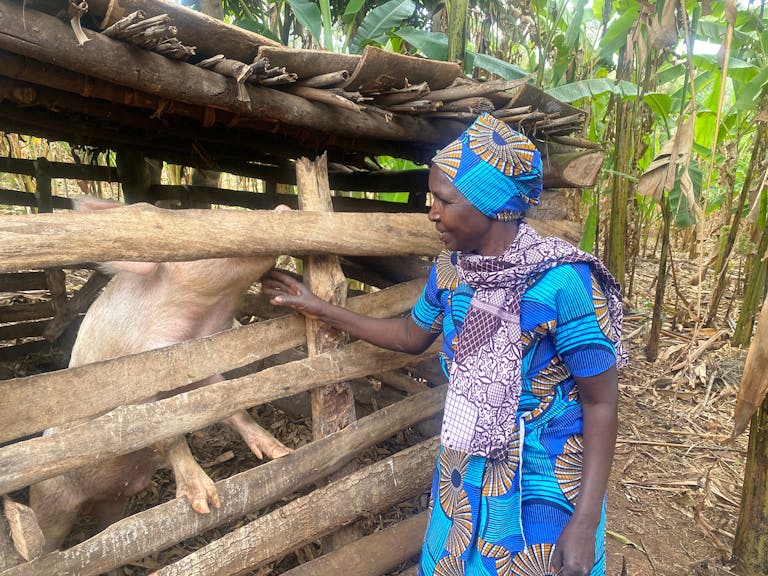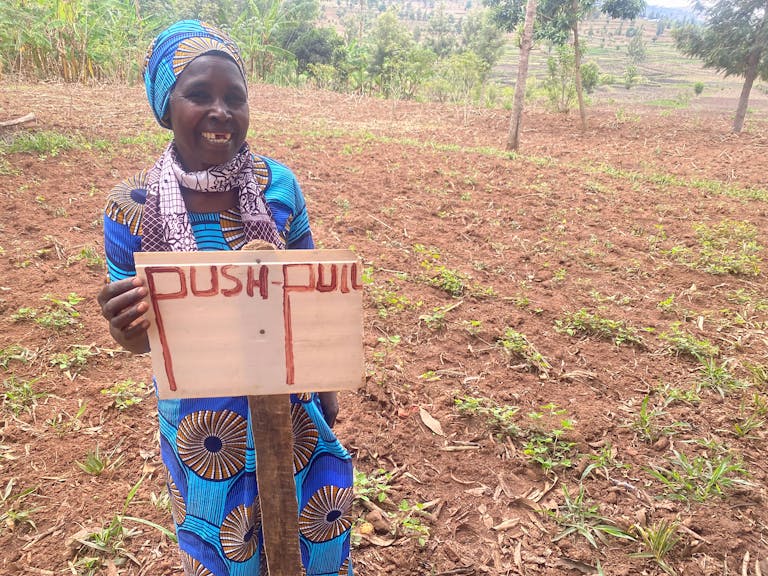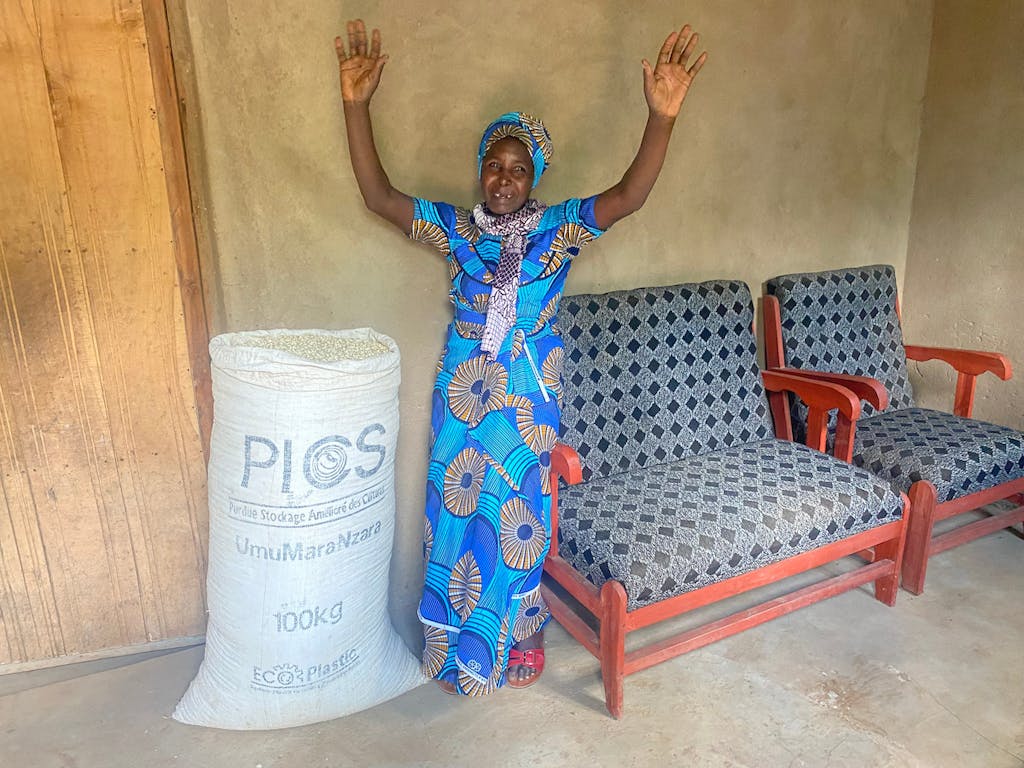At the age of 59, Pelagie led an independent yet isolated life until she connected with other families in her community when Food for the Hungry (FH) led programs made possible through our Multiply Your Donation program and partner grants that established connections between Pelagie and others in her community.
In the densely populated country of Rwanda, an isolated widow struggled to provide enough food for those who relied on her.
Pelagie made a small income from agricultural production on her family’s plot of land. Plots like hers are at a premium in Rwanda for their potential to cultivate and grow food. But Pelagie could barely grow enough to feed herself in addition to her own multigenerational family who also depended on this land for food. With both children out of the house and building their own homes, the burden lay on Pelagie to make the most of her land.
“I felt hopeless and lost a sense of belonging,” Pelagie shared with FH. “I felt desperate after my failure to secure basic needs for my family.”
Despite the challenges that came with widowhood, Pelagie gained the respect of her Nyagitabire community. She successfully managed her household for 27 years following her husband’s passing and became an active member of the FH-supported farmer’s association called Twiteze Imbere Mu Buhinzi N’ubworozi (translates to “developing ourselves in farming”). Over the course of two decades, she held a seat in this association alongside 25 other small farmholders and was treated as an equal in a male-dominated group. Yet despite her enduring dedication, Pelagie still struggled to secure enough food for herself and the families of her two sons. She was working to provide for 10 people.
Hope Within Reach
FH’s involvement in the Nyagitabire community gradually brought hope within Pelagie’s grasp. She participated in training sessions on agro-ecology, crop production, agroforestry, and composting, which collectively contributed to a significant boost in the yield from her modest land. With FH’s support, she acquired a pig to harness its manure to enrich her soil’s fertility and received higher-yielding maize and bean seeds.

One of the tools Pelagie learned was push-pull technology, which helps decrease weeds, pests, and diseases.

Today, Pelagie’s agricultural production keeps multiplying, thanks to her participation in FH’s project. In the past, she could barely store 70 kg of both maize and beans from her small plot of land. Now, she proudly stores over 120 kg of maize and 130 kg of beans. These days, Pelagie envisions a brighter future and aspires to generate more than 80% of her food from her farming activities.
Pelagie now has an abundance of food, making what was once a burden a place of food security to those around her.
Pelagie’s New Life
Pelagie discovered a newfound sense of belonging with her community that feels like family. This is the type of transformation that takes place when FH brings together people within communities to build resilience to poverty. The members of this close-knit group regularly visit one another, offering assistance and camaraderie during various activities. Pelagie continues to learn valuable life skills alongside her newfound friendships that enhance her life and overall well-being.
These days, Pelagie no longer struggles to survive, but instead enjoys her life and is flourishing in her community.
“I am no longer desperate, my hope is restored, and I have found life worth living again. I want my hope to be an example in my community.”
When you give to Multiply Your Donation through FH, you make life-changing improvements like this possible for children, families, and communities in the most vulnerable parts of the world.


